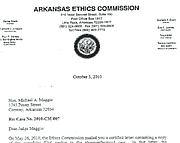A Missouri Senate bill proposing expanded liability protections against civil lawsuits related to the COVID-19 pandemic did not move forward in the legislative process Tuesday following a hearing on it, amid the governor changing his mind about the bill.
Proponents of the legislation wanted to give health care providers and businesses stability - a freedom from fear of being sued for doing their best to try to stay open - but opponents worried the bill is too broad, would shield bad actors and wouldn't offer needed protections.
Gov. Mike Parson on Nov. 13 called for the special legislative session to be expanded to include giving liability protection to health care providers as it relates to their response to a declared state of emergency; product liability protection "for any person who designs, manufactures, labels, sells, distributes or donates products" in response to a declared state of emergency; and premises liability protection for exposure claims related to a declared state of emergency.
"None of these groups should be penalized for their efforts to respond to a declared state of emergency," Parson said. "They must be able to continue operating and serving the public without risk of unnecessary and senseless claims."
Sen. Ed Emery, R-Lamar, filed a bill in response to Parson's call, and Emery's bill and a committee substitute for it were heard before the Senate's Government Reform committee Tuesday afternoon and into the evening.
During the more than two-hour hearing, however, committee members made note of reports on social media that Parson no longer wanted the bill to move forward, and the spokeswoman for Parson's office later confirmed to the News Tribune that was the governor's stance but did not immediately provide further details.
Emery said the discussion would still benefit related legislation, regardless of when it's filed and acted upon.
Lobbyist Rich Aubuchon - speaking on behalf of multiple groups including the Kansas City Chiefs Football Club Inc. and insurance and medical associations - was the first witness to speak in favor of the proposed legislation.
Aubuchon said the bill would provide "safe harbor" of certainty to businesses operating as best they can within health guidelines, but people could still sue for COVID-19-related claims involving fraud, lies about a product or an intent to cause harm.
He said the committee substitute for the original bill - language for which was not immediately available online Tuesday - included additions of a statute of limitations on COVID-19 claims and limitations on punitive damages.
Aubuchon added the substitute - unlike the original bill - was in large part based off of Congressional legislation that did not pass and was designed for the entire country.
Emery said proposed protections for health care providers for nondelivery of care could include procedures postponed because of the pandemic that could have led to what otherwise would been preventable injuries.
He also cited hundreds of civil suits have been filed related to COVID-19, though he later clarified those were not Missouri- specific numbers and could reflect national developments.
Mark Moreland, president of the Missouri Association of Trial Attorneys, said: "As of now, there have been no tort lawsuits (related to COVID-19) filed in the state of Missouri."
Moreland said lawsuits have not been filed because businesses that use best practices in the care of all their clients won't be sued, because they weren't being negligent and should consult counsel if they're threatened with litigation anyway.
He also worried the bill would create protections for manufacturers that might deserve to face legal consequences - such as those that provided defective respirator masks that were distributed to first responders and had to be recalled - or protections for nursing homes that commit neglect or abuse.
"These bills, in whatever form you choose, are simply wrong," Moreland said.
Sen. Bill White, R-Joplin, said bad actors would not be granted those kinds of protections. White also cautioned even lawsuits that don't win still have costs for the parties involved when they're filed.


